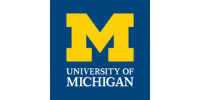- Sur www.coursera.org
Model Thinking

- À son rythme
- Accès libre
- Certificat payant
- 12 séquences
- Niveau Introductif
- Sous-titres en Arabic, Ukrainian, Chinese, Portuguese, Turkish
Détails du cours
Déroulé
- Week 1 - Why Model & Segregation/Peer Effects
In these lectures, I describe some of the reasons why a person would want to take a modeling course. These reasons fall into four broad categories: 1)To be an intelligent citizen of the world 2) To be a clearer thinker 3) To understand and use data 4) To bette... - Week 2 - Aggregation & Decision Models
In this section, we explore the mysteries of aggregation, i.e. adding things up. We start by considering how numbers aggregate, focusing on the Central Limit Theorem. We then turn to adding up rules. We consider the Game of Life and one dimensional cellular au... - Week 3 - Thinking Electrons: Modeling People & Categorical and Linear Models
In this section, we study various ways that social scientists model people. We study and contrast three different models. The rational actor approach,behavioral models , and rule based models . These lectures provide context for many of the models that follow.... - Week 4 - Tipping Points & Economic Growth
In this section, we cover tipping points. We focus on two models. A percolation model from physics that we apply to banks and a model of the spread of diseases. The disease model is more complicated so I break that into two parts. The first part focuses on the... - Week 5 - Diversity and Innovation & Markov Processes
In this section, we cover some models of problem solving to show the role that diversity plays in innovation. We see how diverse perspectives (problem representations) and heuristics enable groups of problem solvers to outperform individuals. We also introduce... - Week 6 - Midterm Exam
- Week 7 - Lyapunov Functions & Coordination and Culture
Models can help us to determine the nature of outcomes produced by a system: will the system produce an equilibrium, a cycle, randomness, or complexity? In this set of lectures, we cover Lyapunov Functions. These are a technique that will enable us to identify... - Week 8 - Path Dependence & Networks
In this set of lectures, we cover path dependence. We do so using some very simple urn models. The most famous of which is the Polya Process. These models are very simple but they enable us to unpack the logic of what makes a process path dependent. We also re... - Week 9 - Randomness and Random Walks & Colonel Blotto
In this section, we first discuss randomness and its various sources. We then discuss how performance can depend on skill and luck, where luck is modeled as randomness. We then learn a basic random walk model, which we apply to the Efficient Market Hypothesis,... - Week 10 - Prisoners' Dilemma and Collective Action & Mechanism Design
In this section, we cover the Prisoners' Dilemma, Collective Action Problems and Common Pool Resource Problems. We begin by discussion the Prisoners' Dilemma and showing how individual incentives can produce undesirable social outcomes. We then cover seven way... - Week 11 - Learning Models: Replicator Dynamics & Prediction and the Many Model Thinker
In this section, we cover replicator dynamics and Fisher's fundamental theorem. Replicator dynamics have been used to explain learning as well as evolution. Fisher's theorem demonstrates how the rate of adaptation increases with the amount of variation. We con... - Week 12 - Final Exam
The description goes here
Prérequis
Intervenants
Scott E. Page
Professor of Complex Systems, Political Science, and Economics
Center for the Study of Complex Systems
Éditeur
L'Université du Michigan (UM, UMich ou simplement Michigan) est une université publique de recherche située à Ann Arbor, dans le Michigan, aux États-Unis. Fondée en 1817, l'université est la plus ancienne et la plus grande du Michigan.
La mission de l'université du Michigan est de servir les habitants du Michigan et le monde entier en occupant une place prépondérante dans la création, la communication, la préservation et l'application des connaissances, de l'art et des valeurs académiques, et en formant des dirigeants et des citoyens qui défieront le présent et enrichiront l'avenir.

Plateforme
Coursera est une entreprise numérique proposant des formations en ligne ouverte à tous fondée par les professeurs d'informatique Andrew Ng et Daphne Koller de l'université Stanford, située à Mountain View, Californie.
Ce qui la différencie le plus des autres plateformes MOOC, c'est qu'elle travaille qu'avec les meilleures universités et organisations mondiales et diffuse leurs contenus sur le web.

